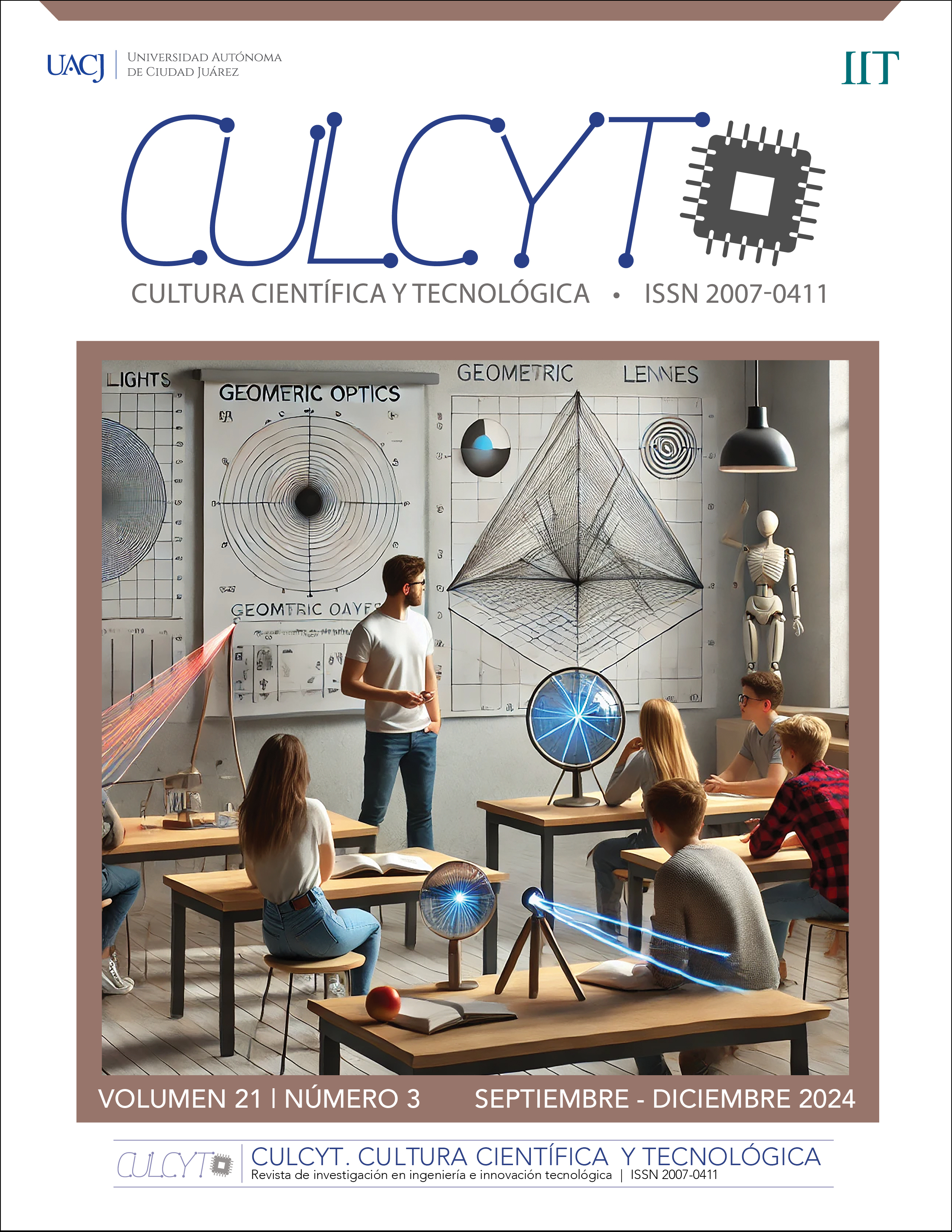Microcredential for Physics Majors
DOI:
https://doi.org/10.20983/culcyt.2024.3.2e.4Palabras clave:
microcertification, Physics degree plan, Data science, Machine learning, Artificial intelligenceResumen
This article describes the benefits of using microcertifications to complement undergraduate physics courses. A microcertification program developed for the physics undergraduate program at University of Texas at El Paso is described, including modules created by the Data Science Community of Practice (DSCOP) group, part of the American Physical Society Data Science Group, on topics of data science, machine learning and artificial intelligence applied to physics topics.
Descargas
Citas
“Texas credentials for the future.” The University of Texas System. Accessed: Jul. 23, 2024 [Online]. Available: https://www.utsystem.edu/sites/texas-microcredentials
C. Sullivan. “Microcredentials Unleashed: Pioneering the Next Frontier.” The evolution. Accessed: Oct. 12, 2024. [Online]. Available: https://evolllution.com/microcredentials-unleashed-pioneering-the-next-frontier
V. Agarwal. “How Companies Like Meta, IBM, AWS & Netflix Are Using Microcredentials To Bridge Talent Gaps.” LinkedIn. Accessed: Oct. 12, 2024. [Online]. Available: https://www.linkedin.com/pulse/how-companies-like-meta-ibm-aws-netflix-using-bridge-talent-agarwal
“Data Science Community of Practice.” DSECOP.org. Accessed: Jul. 23, 2024. [Online]. Available: https://dsecop.org/
“GDS Education Community of Practice.” Github.com. Accessed: Jul. 23, 2024. [Online]. Available: https://github.com/GDS-Education-Community-of-Practice/DSECOP
“Exploratory Data Analysis.” Github.com. Accessed: Jul. 23, 2024. [Online]. Available: https://github.com/GDS-Education-Community-of-Practice/DSECOP/tree/main/Exploratory_Data_Analysis
“DSECOP Github: Parameter Estimation of RLC Circuit Model with Automatic Differentiation and Gradient Descent”. Github.com. Accessed: Jul. 23, 2024. [Online]. Available: https://github.com/GDS-Education-Community-of-Practice/DSECOP/tree/main/Automatic_Differentiation
“Introduction to Classification Algorithms”. Github.com. Accessed: Jul. 23, 2024. [Online]. Available: https://github.com/GDS-Education-Community-of-Practice/DSECOP/tree/main/Intro_to_Classification_Algorithms
“Connecting MonteCarlo to ModernAI.” Github.com. Accessed: Jul. 23, 2024. [Online]. Available: https://github.com/GDS-Education-Community-of-Practice/DSECOP/tree/main/Connecting_MonteCarlo_to_ModernAI
K. Shah. “Learning the Schrödinger Equation.” Github.com. Accessed: Jul. 23, 2024. [Online]. Available: https://github.com/GDS-Education-Community-of-Practice/DSECOP/tree/main/Learning_the_Schrodinger_Equation
“Deep Learning Applications in NMR Spectroscopy.” Github.com. Accessed: Jul. 23, 2024. [Online]. Available: https://github.com/GDS-Education-Community-of-Practice/DSECOP/tree/main/NMR_Deep_Learning
K. Shah. “Gaussian Processes and the Schrödinger Equation.” Github.com. Accessed: Jul. 23, 2024. [Online]. Available: https://github.com/GDS-Education-Community-of-Practice/DSECOP/tree/main/Gaussian_Processes_and_Schrodinger_Equation
J. A Muñoz et al. “Mechanics: projects and exercises in Python.” Github.com. Accessed: Jul. 23, 2024. [Online]. Available: https://github.com/jamunozlab/introductory_mechanics_spring_2023
“CLASS (Colorado Learning Attitudes about Science Survey).” Colorado.edu. Accessed: Oct. 12, 2024. [Online]. Available: https://www.colorado.edu/sei/class
Descargas
Publicado
Cómo citar
Número
Sección
Licencia
Derechos de autor 2024 Jorge A. López, Jorge A. Muñoz

Esta obra está bajo una licencia internacional Creative Commons Atribución-NoComercial 4.0.
Todos los contenidos de CULCYT se distribuyen bajo una licencia de uso y distribución “Creative Commons Reconocimiento-No Comercial 4.0 Internacional” (CC-BY-NC). Puede consultar desde aquí la versión informativa de la licencia.
Los autores/as que soliciten publicar en esta revista, aceptan los términos siguientes: a) los/las autores/as conservarán sus derechos de autor y garantizarán a la revista el derecho de primera publicación de su obra; y b) se permite y recomienda a los/las autores/as agregar enlaces de sus artículos en CULCYT en la página web de su institución o en la personal, debido a que ello puede generar intercambios interesantes y aumentar las citas de su obra publicada.



